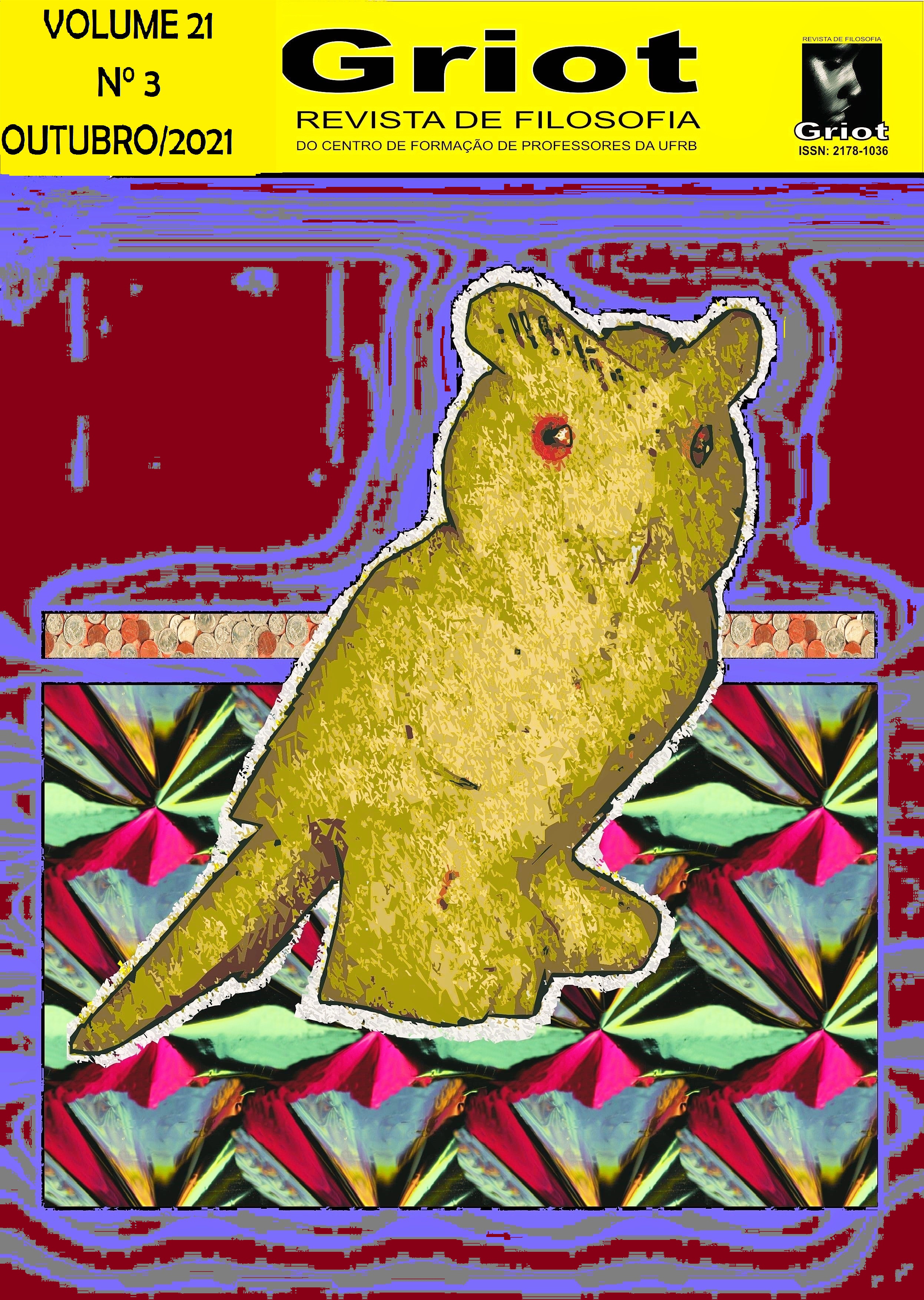The thatsache in K. L. Reinhold’s elementary philosophy
DOI:
https://doi.org/10.31977/grirfi.v21i3.2473Keywords:
Fact; Principle; Ground; Consciousness; Representation.Abstract
This article aims to present the emergence and the problems which the concept of Thatsache or fact of consciousness attempts to solve in the development of elementary philosophy in its early years. To accomplish this task four texts will be analyzed in three steps. Primarily, the investigation focuses on the difference between internal and external conditions of representation in relation to the mere representation and the problems which it rises in his Essay on a new theory of the human capacity of representation (1789). Secondly, the article analyses how Reinhold tries to solve these problems through the concept of fact of consciousness proposing a definition to the representation as a proposition in his On the possibility of philosophy as rigorous science and New presentation of the chiefs moments of elementary philosophy, both present in the Contribution to the correction of previous misunderstandings of the philosophers (1790). Thirdly, how this concept works not only as a principle of consciousness, but also as a ground to elementary philosophy and the philosophy as well, especially in the On the foundation of philosophical knowledge (1791), known just as Fundamentschrift.
Downloads
References
AMERIKS, K. Kant and the fate of autonomy: Problems in the Appropiation of Critical Philosophy. Cambridge: Cambridge University Press, 2000. 351 p.
FABBIANELLI, F. Sul concetto di fondamento in Karl Leonhard Reinhold (1789-1792). Sei tesi sul passaggio dalla Critica dela ragione ala Filosofia elementare. Revista Aurora. Curitiba, v. 30, n.51, p 597-620, set/dez 2018.
GUEROULT, M. L’evolution et la structure de la doctrine de la science chez Fichte. Germany: Georg Olms Verlag, 1982. 383 p.
HENRICH, D. Between Kant and Hegel. US: Harvard University Press, 2003. 341 p.
HERMAN, Melville. Moby Dick. NY: Bantam, 1981. 594 p.
JACOBI, F.H. Friedrich Heinrich Jacobis Werke. Zweiter Band. Leipzig: Gerhard Fleischer d. Jüng, 1845. 544 p.
LAZZARI, A. K.L Reinhold und der Glaube der Vernunft. In: DIGIOVANNI, G. Karl Leonhard Reinhold and the Enlightenment. Dordrecht: Springer, 2010. 337p.
LOPARIĆ, Z. O fato da razão: uma interpretação semântica. Revista Analytica. Rio de Janeiro, v.4, n.1, p 13 – 55, 1999.
PINKARD, T. German Philosophy: The legacy of idealism. Cambridge: Cambridge University Press, 2002. 382 p.
KANT, I. Kritik der Reinen Vernunft. Hamburg: Felix Meiner, 1998. 995 p.
KANT, I. Manual dos cursos de Lógica Geral. Trad: Fausto Castilho (bilíngue). Campinas: Editora Unicamp, 2014. 318 p.
KARÁSEK, J. Reinhold’s Principle of Consciouness and Fichte’s Third Principle. In: BONDELI, M; IMHOF, S. Reinhold and Fichte in Confrontation. Berlin/Boston: De Gruyer, 2020. 236 p.
REINHOLD, K.L. Beyträge zur Berichtigung bisheriger Mifsverständniss der Philosophen. Erster Band. Jena: J.M.Manke, 1790. 456 p.
REINHOLD, K.L Über das Fundament des philosophichen Wissens. Hamburg: Felix Meiner, 1978. 179 p.
REINHOLD, K.L Verusch einer neuen Theorie des menschlichen Vorstellungsvermögens. Prag/Jena: J.M Manke, 1789. 579 p.
REINHOLD, K.L Gesammelte Schriften: Kommentierte Ausgabe. Band 2/2. Basel: Schwabe, 2008. 431 p.
Downloads
Published
How to Cite
Issue
Section
License
Copyright (c) 2021 Douglas William Langer

This work is licensed under a Creative Commons Attribution 4.0 International License.
The authors who publish in Griot: Revista de Filosofia maintain the copyright and grant the magazine the right of first publication, with the work simultaneously licensed under the Creative Commons Attribution 4.0 International License, allowing sharing and adaptation, even for commercial purposes, with due recognition of authorship and initial publication in this journal. Read more...









































































